Anna Forshee Scott
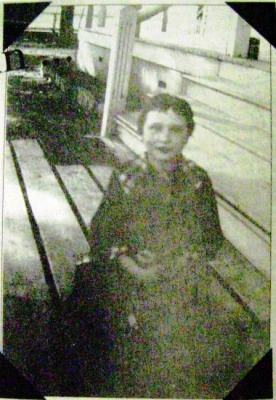 FROM
A RIDE ON THE ORPHAN TRAIN ... TO A HOUSE FULL
OF FAMILY
FROM
A RIDE ON THE ORPHAN TRAIN ... TO A HOUSE FULL
OF FAMILY
Anna Forshee on the steps of the Binion
home at Pilot Grove shortly after she was
selected by the family.
She is wearing the dress given to her from the
Children's Aid Society in New York City for her
trip.

Three small
children, a tiny boy named Sam, 3, his
sisters Anna, 6, and Helen, 8, huddled
together as they waited for a train ... but
a train to where?
They were bewildered, frightened.
Their mother and father had died earlier,
just weeks apart. They were too young to
understand what was happening to them. Why
were they here?
These little ones were placed on the
Orphan Train to be a part of the destiny
awaiting more than 200,000 children who were
sent all over the country to strangers who
might want them. Strangers who might care
for and love them. This did not happen to
all, but some were fortunate and found good
homes. Regardless of who decided to take
them home, their new parents never filled
the place of their own mother and father.
For most of them, all their lives there was
an unknown empty feeling that something was
missing. Missing was the warmth of a
mother's love and touch, the strength of a
father.
Thus was the fate of these three and
their plight throughout the years as told by
Anna Forshee Scott, an orphan train rider
who now resides in Sherman. Anna is a strong
woman by family6, a loving and caring woman
because of her own need, one that was only
fulfilled when she married a man she loved
and later gave birth to their daughter. She
was able to show the love she had missed as
a child. She had her needs but had to be
strong, for her little brother needed her.
He was her strength and she his. He was too
young to know how much his big sister loved
him.
The story of Anna and her siblings
continued as we sat around the dining room
table at her home, reading notes she has
written and that were recorded by her
son-in-law, Sidney Peveto.
As Anna's story unfolded, many
incidents she revealed almost brought tears
to the eyes. She talked about her beautiful
family that included five
great-grandchildren. The legacy she will
leave her family is of a strong woman's love
for them.
"Our French name came from our
father, Samuel James Forshee, but many of
our physical characteristics were inherited
from our mother. In our early years we were
all bilingual, since our mother, Louise
Frederike Volg, had been reared in a German
orphanage until about the age of 18 and then
immigrated to the United States. Thus, both
the German and English language was spoken
in our home," Anna said.
Their mother and dad married in New
York City in 1907; little did they realize
that they would be contributing three
children to rid one of the "orphan trains"
to Texas. They got in on the ride near the
end of its era but were still a part of the
200,00- who were transported from their
native states to another many miles away.
"The orphan train carried us to our new
homes through a relocation system known
today as placing out," Anna noted.
Helen was born March 8m 1909; Anna on
Feb. 17, 1911; Samuel on April 22, 1913 and
Woodrow on Feb 16, 1016. Two weeks after
Woodrow was born their mother died of
childbirth complications. Woodrow was not
well and was placed in foster care in
Brooklyn, N.Y. The other three children and
their father moved to their grandparents' in
Belleville, N.J. But a string of unhappy
events took place. In early December 1917,
their grandfather passed away and on Dec. 12
their father died from heart and kidney
complications.
That left the children with their
grandmother and Aunt Mary, their dad's
sister. However, they soon saw that they
could not care for themselves and the
children, so the children were placed or
surrendered to The Society for the
Prevention of Cruelty to Children in New
York City.
When they entered the society, each
had whopping cough and the measles. In
addition, Anna had a bad case of bronchitis.
Near the end of December 1917, they were
referred to the Children's Aid Society for
placement or adoption.
They stayed at the orphanage only a
brief time. The CAS had a long list of
prospective families who wanted to adopt or
take in the children, who were soon placed
on the orphan train headed for Texas.
A woman from CAS accompanied the
group that arrived in McKinney around Jan.
22, 1918. There were immediately taken to a
hotel where they were bathed and "dressed
up" and then lined up for the local people
to "look us over," as Anna said.
"Fay Binion selected me and took me
to Pilot Grove to the home of her parents,
Zeph and Zora Binion. Sam and Helen went
with others but the CAS person preferred he
be placed with one of the girls because of
his young age," Anna said.
In a few days they were at the Binions, but
for only a little while. Helen was
placed in the home of Dr. Birth of
Whitewright. Sam remained. Later, due
to some domestic difference with his wife,
Dr. Birt asked CAS to find Helen another
home.
Helen was placed in several home following
their ride to Texas, but Sam and Anna
thrived with the Binions.
"We liked our foster parents and felt that
they, for the most part, liked us. We
were taught to work and carry our share of
the working load. Since the Binion children
were all grown at the time that Sam and I
were taken in, we were expected to "pick up
the slack" left by them. I soon was
taught to milk the cows, shuck the corn,
feed the chickens and gather the eggs.
Sam learned to shuck the corn, turn
the cream separator and draw water for the
wash house. A lot of Sam's work became
my responsibility because of his young age.
But as he grew older, he had to take
over more of the work load," Anna said.
She and Sam attended a one-room school in
Oxford, which was close enough to the Binion
farm that they were allowed to walk to
school. Even though they were expected to
attend school, they still had chores to do.
Before Anna left for school she said
she had to help cook breakfast, wash the
dishes and sweep the floor; then she could
dress for school.
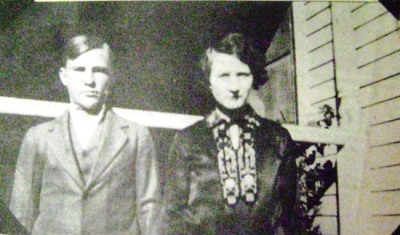 |
Sam and
Anna during their teen years. |
"We
always thought the Binions intended to adopt
us, but the Binion children did not want
that to happen. They probably thought
we would inherit part of their parents'
estate. I kept the Forshee name
throughout, but Sam took on the Binion
Name," Anna said.
Sam and Anna continued their education and
in 1928 she finished 10th grade, the highest
grade in the school. By 1930, she married
Rufus Scott and had received her teacher
certification from East Texas State Teachers
College. She took a year's leave from
teaching to have their only child, Patsy
Ann. She remembers praying that she
would not have a lot of children for fear
something would happen to her and they would
be left like she was.
Sam
completed high school one year after Anna
and they attended college together. However,
jobs were scarce in Texas at that time and
he went to California to work in the
aircraft industry. He now lives in West
Virginia.
Helen, after living with several
families, quit school and moved to Dallas
and took business courses to prepare her for
a position in the business world. Now
deceased, Helen married and lived most of
her life in Fort Worth. Through one of her
daughters, Jeanette, who contacted the New
York CAS, the family found that Woodrow had
been adopted in 1919 by a couple named
Kreig. At the present time, the family is
making inquiries in the New York area for
any information about Woodrow.
Neither Anna nor her late husband,
who was also a teacher, ever talked about
her being on the orphan train. They were
afraid it might frighten their students and
make them worry they might lose their
parents like she did.
Anna has attended the Texas Orphan
Train Annual Reunion held in Granbury twice,
in 1995 and again this year. She is one of
five attending with their families this
year. She and Sam have remained close and
visit as often as possible.
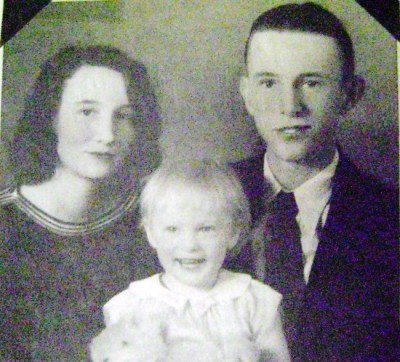 |
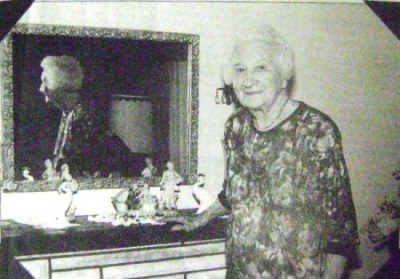
|
It's hard to
think of these little ones when they rode
the train --- they had to be brave, even
when they felt bad, there were always chores
to do, housekeeping never ended. But they
grew up thankful for food, a warm bed and an
education. They are thankful for the people
who saw to these needs and, after years,
found that they were loved, too which was
revealed in later letters.
Passing through life, these children
of immigrants grew up to life, liberty and
the pursuit of happiness that was promised
in the United States of America, fulfilling
their parents' dream.
The reasons for thousands of children
being without the benefit of a secure home
life in the late 1800s were numerous. Mass
immigration, with no apparent restrictions,
brought about chaos. German immigrants
alone, arriving in the United States,
numbered over 175,000. Irish immigrants
arrived in large numbers as well.
New York City was the main port of
entry for immigrant ships. Overcrowding,
disease, unemployment and loss of lives led
to many children being homeless, although
not necessarily orphans. The term 'orphan'
was applied to all children who did not live
with adults in their family.
Following the Civil War, railway
lines began to run smoothly once again and
the so-called Orphan Trains carried their
precious human cargo. Children were place in
this fashion until 1930. Today, their
descendants number over two million.
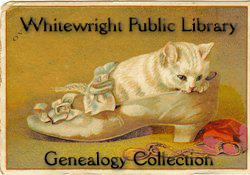
The Orphan
Train
Susan
Hawkins
©2024
If you find any
of Grayson
County
TXGenWeb links
inoperable,
please send
me a message.
|




